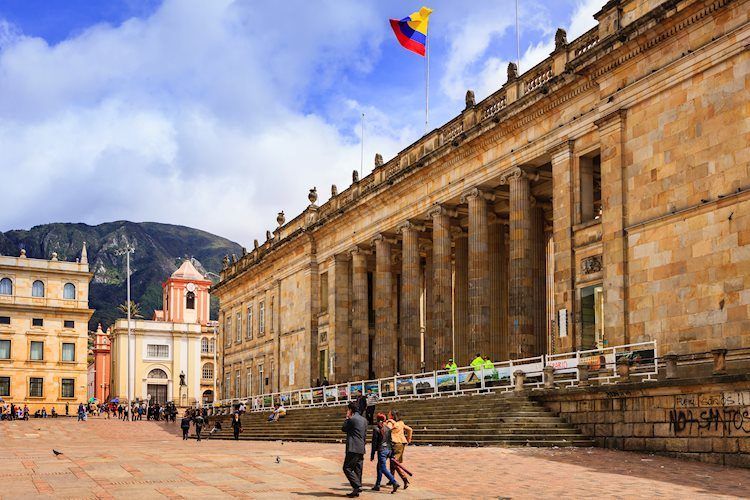The bill of the Ministry of Interior for the protection of volunteerism has been discussed in the Plenary for a while now. The rapporteur of ND Giannis Loverdos pointed out that from the process that preceded the committee of public administration, public order and justice, it became clear that it is a bill that, in its basic lines, meets a broader consensus and its philosophy is moving in a positive direction. Mr. Loverdos referred to the contribution of civil society organizations and stressed that the government and the parliamentary majority want their support and strengthening, they want the participation of more and more citizens in the work of civil society organizations. At the same time, he pointed out that there were cases of organizations that provoked with their behavior, suspicion among the citizens and the perception that some people make money under the pretext of their actions.
He stressed that while these cases are few, they have caused widespread suspicion in the conscience of citizens and this phenomenon attempts to address the bill that introduces a coherent framework with transparency and accountability procedures. “The state has an obligation to protect the transparency and accountability of the organizations that request state subsidies and tax exemptions,” said the ND rapporteur, referring to the conditions for inclusion in the two registers provided by the bill. Especially for the registration of civil society organizations in the basic register, which is a condition for a state subsidy of up to 50,000 euros, Mr. Loverdos said that, in his opinion, even stricter conditions should be set than those provided by the bill. As for the registration in the special register that enables financing of more than 50,000 euros per year, the rapporteur of ND pointed out that conditions are correctly introduced that ensure transparency in financial management. He also described as important the measure for the mandatory registration of volunteers in the electronic database ERGANI, in order to clarify who is an employee and who is not.
SYRIZA rapporteur Alexandros Meikopoulos, who had expressed reservations to the committee about his party’s final stance in plenary, although he stressed at the outset that there were issues on which the parties could agree, such as the scope of the Non-Governmental framework. Organizations, did not fail to denounce the attitude of ND which, as he said, was an attitude of slander of the work of NGOs, especially during the refugee crisis. In this climate, he said, the bill should protect NGOs from slander, ensure their independence, and make clear the framework for the state to cooperate with civil society organizations. The MP pointed out that a large part of critical issues for the operation of Civil Society Organizations is left to the issuance of ministerial decisions and added that although a constant request of voluntary organizations is to reduce bureaucracy, they will eventually face bureaucratic, administrative burdens and obligations. which will make it difficult for them to register in the state subsidy registers. Mr. Meikopoulos characterized as scandalous the amendment of the Ministry of Citizen Protection for the EYP, which was submitted on Friday night in the bill, noting that the evaluation framework that had been established for its staff and which returns to the 1961 logic of the EYP is overturned.
The special speaker of the Movement for Change, George Kaminis, described the bill as “another example of bad legislation” because it includes provisions that have not been previously consulted with the relevant bodies, such as the provisions on Local Government and citizenship. Regarding the main body of the bill, that of volunteering, Mr. Kaminis said that the bill seems to serve the demands mainly of large organizations, although European, the trend is to strengthen small and medium-sized organizations in civil society. He also pointed out that the bill does not clearly describe the scope of the state’s cooperation with the organizations but gives more weight to the obligations of the organizations and public benefit bodies.
Mr. Kaminis characterized the absence of criteria for the evaluation of organizations that will receive state funding as a significant shortcoming. Referring to the obstacles to participation in the administration of volunteer organizations, George Kaminis called on the government to keep the crimes of a financial nature but, as he stressed, criminal offenses should be reconsidered as participation in civil society organizations is often a way to the smooth reintegration of released prisoners. The special spokesman of the Movement for Change complained that the amendment of the Ministry of Civil Protection, which also regulates issues of the EYP, is a clear case of expulsion of the disliked in the administration of the EYP. He also said that a clear direction is the government control of the EYP with conditions of partisanship and opacity.
KKE spokesman Manolis Syntyhakis said the bill was moving in the EU’s main anti-popular direction, confirming the systematic distortion of the concept of volunteering, a distortion that relieves the state of the obligation to meet basic needs. The KKE MP also criticized the provisions for voluntary work, noting that they lead to unpaid and uninsured work, lead to work without rights to volunteers. Manolis Syntyhakis characterized the debate on the transparency of the operation of volunteer organizations, which is in fact the birth of governments, as a conscious choice that wants the state mechanism to be limited to a coordinator role and that in the end this volunteerism is a volunteering oil. class state, which has nothing to do with the offer to fellow human beings, which hides the black labor relations. He also pointed out that the 6 areas of volunteering action described in the bill for volunteers, are areas that should be solely the responsibility of the state and added that the draft law serves the interests of business groups for heavy funding and tax relief while still given more space in large organizations at the expense of smaller ones. Manolis Syntyhakis characterized as unacceptable, reactionary and repressive the amendment of the Ministry of Citizen Protection that establishes a single ballot paper for the nomination of representatives in ELAS and called on the government to take it back.
Hellenic Solution expert Konstantinos Hitas accused the government of coming to distribute money to NGOs that operate uncontrollably in areas that should be served by the state. Although he clarified that not all NGOs are “in the same cauldron”, he did not fail to complain that “the vast majority of NGOs that have sprung up on the issue of illegal immigration, do business”. Mr. Hitas said that the State must first identify, record the NGOs, control them for what they have done and not open the door wide to organizations that have become a permanent scandal, which are not public benefit but aimed at volunteering, making money. He also complained that the government gives immunity and privileges to NGOs that make money on the backs of taxpayers and “slap” and added that while “there is money for NGOs”, schools remain dirty because the state has no money to hire cleaners. Referring to the amendment of the Ministry of Civil Protection, Mr. Hitas said that although it includes positive provisions such as those for the payment of travel expenses to the police, the Hellenic Solution can not vote because of the provisions that “puts a broom” in the EYP to makes the government “its own shop”. As he did not say, the Minister of Citizen Protection must give an answer today because he is expelling all these executives from the EYP.
The special speaker of MERA25, Fotini Bakadima, raised the issue of the amendment of the Ministry of Civil Protection, which concerns, among others, the EYP. The MP accused the government of systematically trying to intervene in very serious issues, without having previously discussed in parliament. As for the content of the amendment, he noted that this is not the first time that the government seeks to bring in a service. Regarding the main part of the bill, that of volunteering, Fotini Bakadima pointed out that the government has not previously listened to the civil society that has highlighted the black spots of the legislative intervention, which lacks a clear framework for the state to cooperate with these organizations. . Ms. Bakadima also called on the government to reconsider the obstacles to participating in the administration of volunteer organizations, in order to be able to reintegrate into society, people who at some point got out of the way. “Although the bill could have therapeutic and supportive effects in the field of volunteering, it seems to leave without support these citizens, members of civil society, who really offer, and strengthens their course by leading them fatally out of effort, with the obstacles that puts them “, said Fotini Bakadima.
.
Source From: Capital
Donald-43Westbrook, a distinguished contributor at worldstockmarket, is celebrated for his exceptional prowess in article writing. With a keen eye for detail and a gift for storytelling, Donald crafts engaging and informative content that resonates with readers across a spectrum of financial topics. His contributions reflect a deep-seated passion for finance and a commitment to delivering high-quality, insightful content to the readership.






